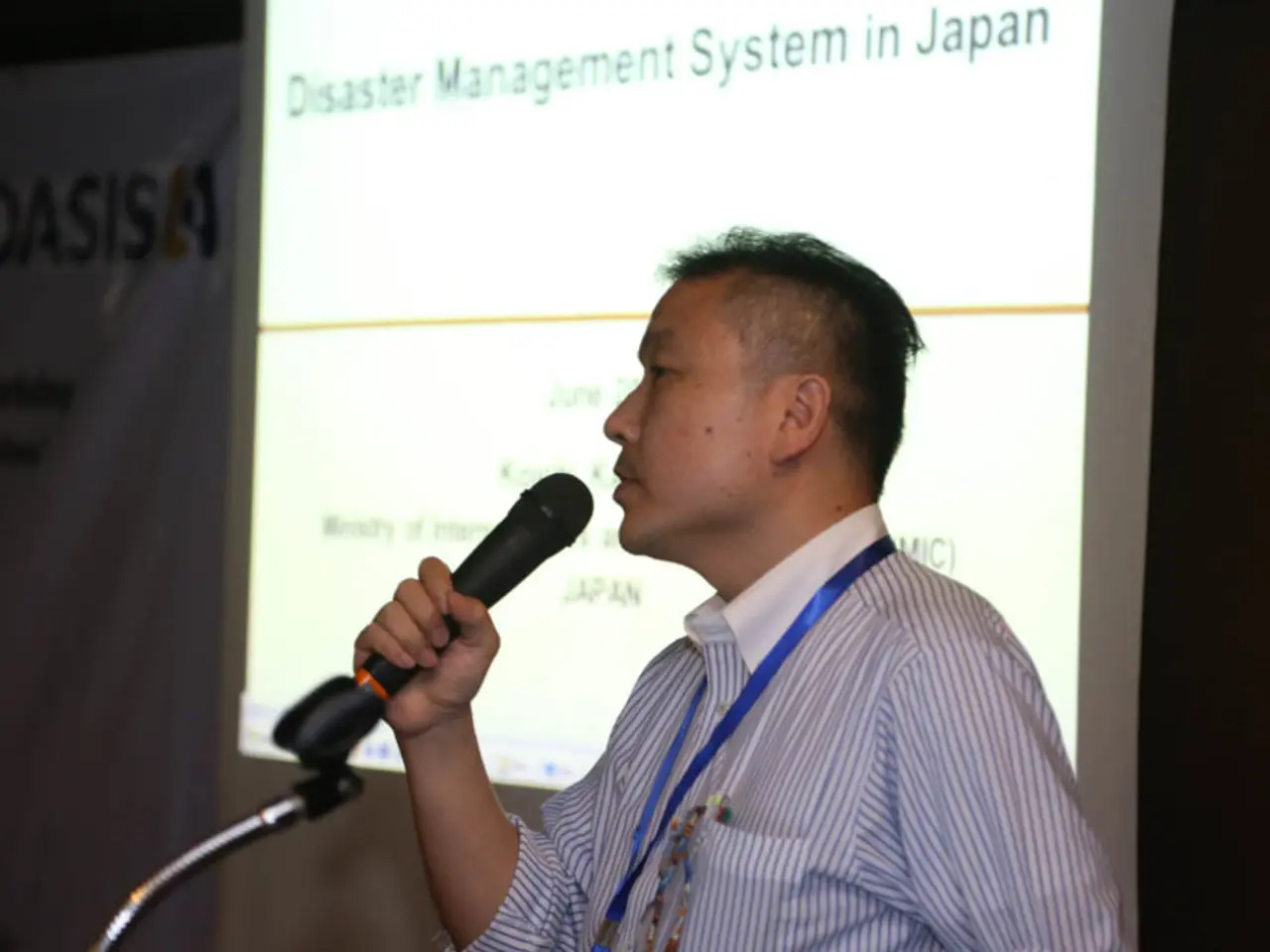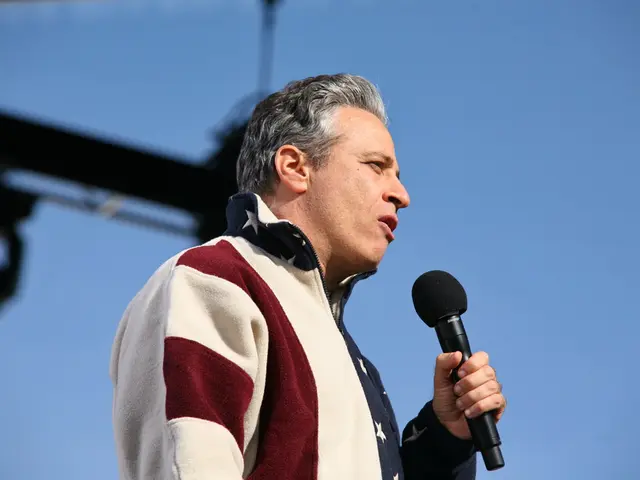Former Prime Minister Suga Exerting Efforts to Maintain Clout Within LDP
Japan's Political Landscape in Turmoil: Ishiba Holds On Amid Pressure, Suga Positions for Future
In the aftermath of the Liberal Democratic Party's (LDP) defeat in the July 20, 2025 House of Councillors election, Prime Minister Shigeru Ishiba finds himself under intense pressure to resign, but he has refused to step down. The party is sharply divided, with about 80% of members urging Ishiba to resign due to the electoral losses and broader political challenges, including economic pressures and declining public support.
Ishiba, who won the LDP leadership with narrow backing, is attempting to realign the party more centrist by sidelining old conservative figures and appointing former prime minister Yoshihide Suga as LDP vice president. However, his hold on power is contested, and many view his continued leadership as tenuous amid ongoing factional disputes.
Despite the internal strife, Suga remains a prominent figure within the party, serving as vice president. Suga, who was prime minister from 2020 to 2021, is seen as part of Ishiba’s effort to shift the party away from the old conservative guard, signaling an attempt at ideological renewal within the LDP. However, Suga's low public approval from his term primarily due to COVID-19 management criticism has kept him from aiming for an immediate return to the prime ministership.
At a meeting on July 23, Suga stressed the need to rebuild the LDP and consider the social atmosphere. Notably, he did not explicitly oppose Ishiba's continued leadership. The meeting, which included former prime ministers Taro Aso, Fumio Kishida, and incumbent Prime Minister Shigeru Ishiba, provided a platform for discussions on the party's future direction.
Meanwhile, Taro Aso, a former prime minister and vocal critic of Ishiba, urged the LDP chief to resign, stating that the party will not be able to win elections under his leadership. LDP members who were part of a now-defunct intraparty faction led by former Prime Minister Shinzo Abe have also been calling for Ishiba's resignation since the Upper House election loss.
However, according to media organization opinion surveys, many people want Ishiba to continue in power. The Ishiba-led ruling coalition has already lost its majority in the House of Representatives, the all-important lower chamber, but Ishiba's resilience in the face of pressure suggests a determined stance to weather the political storm.
As the autumn extraordinary parliamentary session approaches, former Prime Minister Yoshihide Suga is considering ways to increase his presence. His role as vice president places him prominently within party dynamics during this turbulent time, and some speculate that he may be positioning himself for a potential return to the prime ministership in the future. The political landscape in Japan continues to evolve, with the LDP grappling with internal divisions and external challenges.
- The media has reported surveys indicating that many people support Prime Minister Shigeru Ishiba's continuation in power, despite the LDP's recent electoral loss.
- Amidst the internal strife within the Liberal Democratic Party, former Prime Minister Yoshihide Suga, now serving as vice president, is reportedly contemplating ways to boost his presence, possibly positioning himself for a future run at the prime ministership.
- Photos circulating in general news show sharp exchanges between party members during the meeting on July 23, indicating ongoing tension and migration of political alliances within the LDP, particularly concerning the leadership of Prime Minister Shigeru Ishiba, amidst war-and-conflicts and policy-and-legislation debates within Japanese politics.






